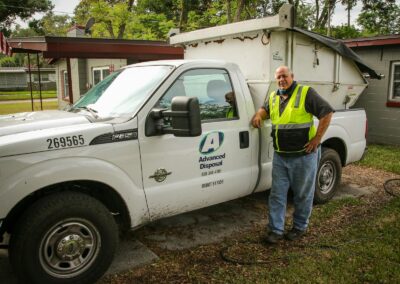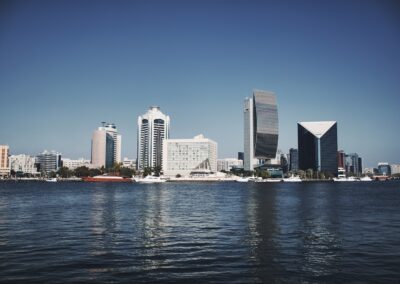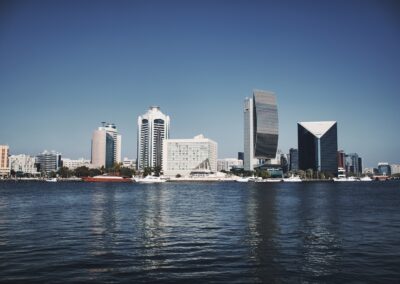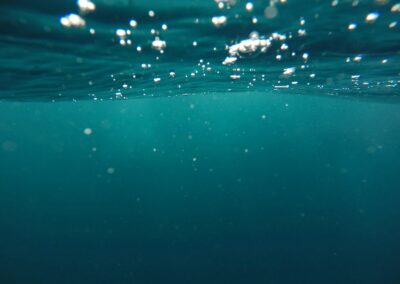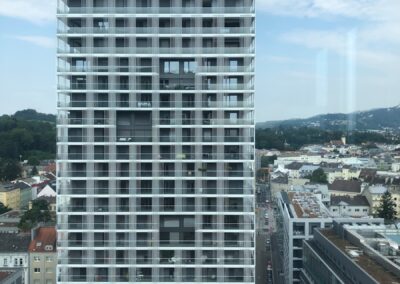Harnessing the Potential of Ocean Urbanization
Advancing Marine Biotechnology
Ocean urbanization is emerging as a transformative approach to urban development, offering unique opportunities for economic growth and sustainability. The focus on ocean urbanization is especially relevant for cities like Riyadh, Dubai, and other rapidly developing areas in Saudi Arabia and the UAE, which are exploring innovative ways to expand their economic horizons. One of the most promising sectors that ocean urbanization can significantly impact is marine biotechnology.
Marine biotechnology involves the exploration and utilization of marine organisms and their derivatives for industrial, pharmaceutical, and environmental applications. The vast biodiversity of marine ecosystems presents a rich source of bioactive compounds, enzymes, and other bioproducts that have immense potential for innovation and commercialization. By establishing urban centers on the ocean, research facilities and biotechnological companies can be closer to these resources, facilitating easier access and more efficient research processes.
Moreover, the integration of ocean urbanization with marine biotechnology can lead to the development of new industries focused on sustainable practices. For instance, bio-remediation using marine organisms can help in cleaning polluted marine environments, while aquaculture advancements can enhance food security. These initiatives not only promote environmental sustainability but also create high-value jobs and stimulate economic activity in coastal regions.
Expanding Renewable Energy Sources
The shift towards ocean urbanization also opens up new avenues for the development and deployment of renewable energy technologies. Offshore renewable energy, particularly wind and wave energy, offers significant potential for generating sustainable power. By positioning urban developments on or near the ocean, cities can harness these renewable energy sources more effectively.
Offshore wind farms, which are already being developed in various parts of the world, can provide substantial amounts of clean energy. These farms benefit from stronger and more consistent winds found over open waters, leading to higher energy output compared to land-based wind turbines. Additionally, the installation of wave energy converters can further augment the energy mix, capturing the kinetic energy of ocean waves and converting it into electricity.
Integrating renewable energy infrastructure with ocean urbanization can help coastal cities achieve energy independence and reduce their carbon footprint. For example, Dubai’s commitment to sustainability and innovation can be further enhanced by exploring ocean-based renewable energy projects. Such initiatives not only contribute to environmental goals but also stimulate economic growth by creating new industries and job opportunities in the renewable energy sector.
Fostering Economic Diversification
Ocean urbanization provides a platform for economic diversification, which is crucial for regions heavily reliant on traditional industries. By developing new economic sectors such as marine biotechnology and renewable energy, cities can reduce their dependence on oil and gas and build more resilient economies. This diversification is particularly important for countries like Saudi Arabia and the UAE, which are actively seeking to diversify their economic bases in line with their long-term strategic visions.
In addition to biotechnology and renewable energy, ocean urbanization can spur growth in sectors such as tourism, maritime transportation, and sustainable fisheries. Floating hotels, underwater attractions, and marine research centers can attract tourists and researchers, boosting local economies. Enhanced maritime infrastructure can improve trade routes and logistics, facilitating international commerce and connectivity.
Furthermore, sustainable fisheries and aquaculture can provide a steady supply of seafood, contributing to food security and economic stability. By leveraging the ocean’s resources responsibly, coastal cities can create a diverse and sustainable economic landscape that supports long-term prosperity and environmental stewardship.
Implementing Ocean Urbanization Strategies
Innovative Urban Planning and Design
Effective implementation of ocean urbanization requires innovative urban planning and design that address the unique challenges of building on water. Engineers and urban planners must consider factors such as wave dynamics, sea level changes, and environmental impacts to create resilient and sustainable floating cities. Advanced materials and construction techniques are essential to ensure the durability and stability of these structures.
One approach is the use of modular and flexible designs that can adapt to changing conditions. Modular floating platforms can be reconfigured and expanded as needed, allowing for scalable and adaptable urban growth. These platforms can host a variety of functions, from residential and commercial spaces to research facilities and renewable energy installations, creating multifunctional urban environments.
Environmental considerations are also paramount in the design of ocean urbanization projects. Green infrastructure, such as floating parks and artificial reefs, can enhance biodiversity and provide natural storm protection. Sustainable building practices, including the use of renewable materials and energy-efficient systems, further reduce the environmental footprint of floating cities. By prioritizing sustainability, ocean urbanization can create harmonious and resilient urban ecosystems that benefit both people and the planet.
Collaboration and Stakeholder Engagement
Successful ocean urbanization requires the collaboration of various stakeholders, including government authorities, private sector players, and the local community. Public-private partnerships can provide the necessary funding and expertise to develop and implement large-scale ocean urbanization projects. Government policies and incentives can also play a crucial role in promoting investment and innovation in this area.
Community engagement is essential to ensure that ocean urbanization projects meet the needs and aspirations of local populations. Transparent and inclusive planning processes can foster community support and involvement, enhancing the social sustainability of these projects. By involving residents in the decision-making process, urban planners can create floating cities that are not only economically viable but also socially equitable and culturally vibrant.
International collaboration can further enhance the development of ocean urbanization. By sharing knowledge, technologies, and best practices, countries can accelerate progress and address common challenges. Global partnerships can also facilitate the adoption of international standards and regulations, ensuring the safety, sustainability, and scalability of ocean urbanization initiatives worldwide.
Monitoring and Adapting to Environmental Changes
Continuous monitoring and adaptation are vital for the long-term success of ocean urbanization projects. Environmental monitoring systems can provide real-time data on sea levels, weather conditions, and ecological health, enabling proactive management and mitigation of potential risks. Adaptive management strategies, including flexible urban designs and responsive infrastructure, can ensure that floating cities remain resilient to environmental changes.
Research and innovation play a critical role in advancing ocean urbanization. Ongoing scientific research can uncover new insights into marine ecosystems, renewable energy technologies, and sustainable urban practices. Innovation hubs and research centers within floating cities can drive the development of cutting-edge solutions and foster a culture of continuous improvement.
Regular assessments and evaluations of ocean urbanization projects can identify areas for improvement and ensure alignment with sustainability goals. By embracing a proactive and adaptive approach, coastal cities can harness the full potential of ocean urbanization to create thriving, sustainable, and resilient urban environments.
Conclusion
In conclusion, ocean urbanization offers significant opportunities for the development of new economic sectors, such as marine biotechnology and renewable energy. By harnessing the potential of the ocean, cities like Riyadh, Dubai, and others in Saudi Arabia and the UAE can achieve sustainable economic growth and diversification. Effective urban planning, stakeholder collaboration, and continuous innovation are essential for the successful implementation of ocean urbanization projects. This forward-thinking approach not only addresses the challenges of urbanization and climate change but also paves the way for a sustainable and prosperous future.
—
#oceanurbanization #marinebiotechnology #renewableenergy #economicdevelopment #sustainablecities #SaudiArabia #UAE #Riyadh #Dubai





